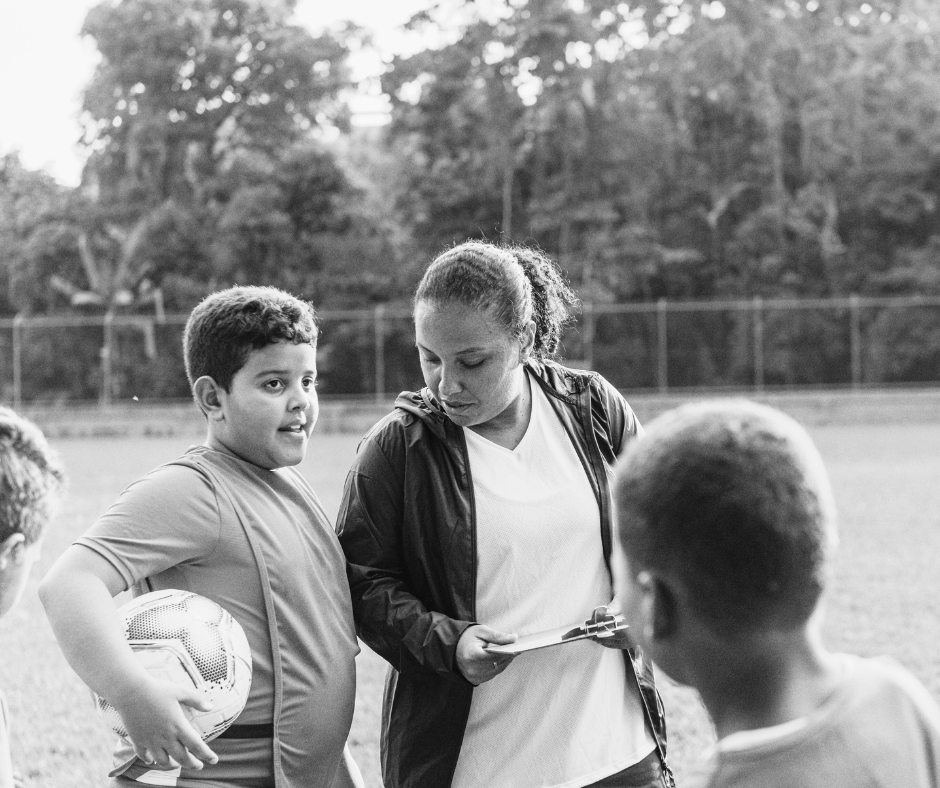Dear Sports Parents: Here’s What Your Volunteer Coach Wants You to Know
Back-to-school doesn’t just mean new teachers, new backpacks, and new routines. It also means back to team sports—early practices, group chats, carpool chaos. But it’s not just kids who are returning to the field or court. Thousands of volunteer coaches are stepping back into their roles, too—many of them for the first time, some reluctantly, most without formal training. If you’re a sports parent, this is your reminder: your coach is often just another parent, navigating the same work meetings, school pickups, and overflowing calendars as you are. So, as a seasoned coach and a reformed sideline critic, here are a few reminders that might make the season smoother for everyone.
Are You Supporting or Pressuring Your Athlete: Take Our 3-Minute Quiz
1. Your Kid’s Coach Might Have Come Straight From Work
Not a private training session. Not a strategy meeting. A work Zoom call that ran long, followed by rush-hour traffic and a forgotten water bottle. They’re showing up with a day already behind them. Meet that with a little grace, not a list of complaints.
2. Feedback Is Fine—But Timing Is Everything
Sending a lengthy email about playing time the night after a tough loss? Probably not the best moment. Same goes for pulling a coach aside at the end of practice when they’re juggling cones, water jugs, and kids begging for snacks. Wait. Think. Then reach out.
3. The Coach Isn’t the Equipment Manager
If your kid’s always showing up without shin guards, a ball, or the correct color jersey, that’s not on the coach. Every time your child is unprepared, someone else’s time gets wasted. Help them take ownership—early.
4. Don’t Turn the Sideline Into a Second Bench
It’s tempting. You see your kid hesitate and want to yell, “Go for it!” or “Shoot it!” But if you’re offering play-by-play instructions during a game, your voice becomes noise. And worse, your kid starts second-guessing the person actually coaching them.
5. Kids Don’t Thrive in Chaos
Constant reschedules. Late arrivals. “We’re missing again this week, sorry!” It adds up. Volunteer coaches are trying to create rhythm, chemistry, and some kind of plan. When half the team is living in chaos, no one gets better.
6. See Them All
The quiet one who’s still trying to be brave enough to speak up. The intense one who crumbles under her own expectations. The lighthearted one who makes everyone laugh, but loses focus the moment things get hard. Every kid brings their own story—some wear it loud, others tuck it deep. And while coaches are tasked with seeing them all, parents have a role, too. Zoom out. Watch the whole team. Because when you stop looking only at your own child, you start to understand the weight of what’s being asked of these coaches—and what it really means to support them.
7. Pick-Up Time Is Not Optional
You know what’s awkward? A coach sitting in a dimly lit parking lot with one kid still waiting because mom or dad is “five minutes away”—ten times. You wouldn’t do it at school or daycare. Don’t do it here.
8. Some Coaches Are Brand New at This
Not new to parenting. New to coaching. Or new to this age group. Or this sport. They’re learning, too. If you’ve coached before or have helpful insight, offer it with care. Not critique. Not condescension. Not the vibe of “Well, when I coached…”
9. We Could Use a Little Help Now and Again
Coaching doesn’t end when practice does. We’re the ones loading gear, organizing team dinners, finding refs, managing group texts, and cleaning up the field when everyone else has gone home. Most of us didn’t sign up to be the team admin, snack coordinator, and emotional support system—but here we are, doing our best. We don’t need a parade. But we could use a hand.
Ask if there’s something you can take off our plate. Even small things—like sending a reminder, bringing a folding table, or staying five minutes late—go further than you think.
10. If You’re Frustrated, Zoom Out
One bad game. One confusing rotation. One frustrating week. Take a breath. Ask yourself: is this really about my kid’s development… or my own expectations? Are we here for the long haul, or just reacting to the moment?
Final Thought
Volunteer coaches aren’t flawless. They’ll forget names, mess up a sub, or overthink a practice plan. But they’re there. And that matters more than most of us say out loud.
Let’s meet that effort with respect, not resentment. With patience, not pressure. Because when parents and coaches see each other as partners—not adversaries—every kid wins.
For more like this and support along your journey visit Ilovetowatchyouplay.com and @theilovetowatchyouplay.
Here are a few more articles you might like:
The Careless Language of Sports Parents
My Daughter Quit Sports and This is What I Want All Sports Parents To Know
